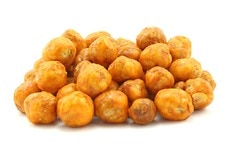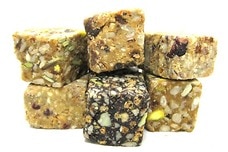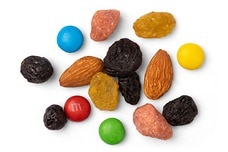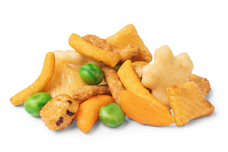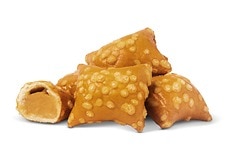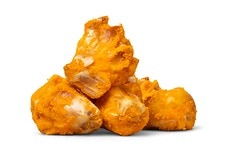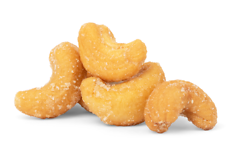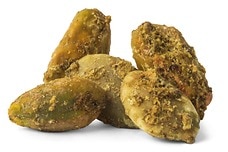Vegetarian Snacks
More than 7 million Americans identify as vegetarian, while another 22.8 million follow a largely vegetarian diet (Vegetarian Times, n.d.). Whether you are a dedicated vegetarian or an omnivore exploring healthier meat-free options, getting the right balance of nutrients is essential. Snacking is a healthy part of any diet, making it important to choose vegetarian snacks that satisfy your hunger while meeting your unique nutritional needs.
Types of Vegetarian Diets
A vegetarian diet is not a monolithic thing. Rather, there are numerous types of vegetarian diets, each with its own special guidelines. Some of the most common forms of vegetarianism include (Vegetarian Nation, n.d.):
- Pescetarianism. Pescatarians eat fish but avoid consumption of meat, poultry, and dairy products.
- Lacto-vegetarianism. Lacto-vegetarians do not consume meat, poultry, fish, and eggs, but dairy products such as milk or yogurt are permitted.
- Ovo-vegetarianism. Ovo-vegetarians avoid eating meat, poultry, fish, and dairy products. However, they do eat eggs.
- Lacto-ovo vegetarianism. Lacto-ovo vegetarians do not eat meat, poultry, or fish. Both dairy products and eggs are allowed.
- Vegan. Vegans do not eat any foods that come from animal sources. This includes meat, poultry, fish, eggs, and dairy products. Some vegans eat honey, while others do not.
Nutrients that Are Particularly Important for Vegetarians
Following a vegetarian diet is a healthy lifestyle choice that is associated with lower rates of obesity and better cardiovascular health (American Heart Association, 2015). However, vegetarians must be vigilant about their dietary intake to ensure they get the broad array of nutrients needed to maintain health. Meat and animal products are a good source of certain nutrients that are less abundant in non-animal sources. In particular, it is important for vegetarians to prioritize getting the following nutrients:
- Complete proteins. Proteins are made up of amino acid building blocks, which are used to repair muscle tissue and build new proteins. A complete protein is one that contains all 9 of the essential amino acids the body needs (English, 2015). Lacto-ovo vegetarians can get all of these amino acids from eggs. It has been found that eating a variety of plant proteins can provide all the essential amino acids and thus providing ample protein for the body. For example: having rice with lunch and then beans with dinner will result in consumption of all the essential amino acids. Additionally, many plant foods provide all of the essential aminos acids including quinoa, chia seeds,beans, and buckwheat (American Dietary Association, 2009).
- Iron. Animal products are the only dietary source of heme iron, which is the form of dietary iron that is best absorbed by the human body. In contrast, plant-based foods only contain non-heme iron, of which only 5 to 12% is bioavailable (Office of Dietary Supplements, 2016). Thus, vegetarians must eat larger quantities of iron-rich foods to ensure they get enough. Leafy green vegetables, beans, fortified breakfast cereals, and tofu are good vegetarian sources of iron.
- Vitamin B12. Vitamin B12 is exclusively found in animal products (Office of Dietary Supplements, 2016). This vitamin is important for red blood cell formation and metabolic processes. Non-vegan vegetarians may obtain vitamin B12 from eggs, milk, or other dairy products. Vegans may need a dietary supplement to get enough, although breakfast cereals and other products are sometimes fortified with the vitamin.
Healthy Vegetarian Snacks
The best snack is one that provides the nutrients needed to boost energy and induce feelings of satiety. Aim for a snack that contains 200 to 300 calories (Whole Living, 2014). A good vegetarian snack includes complex carbohydrates to sustain energy as well as lean protein to help you feel full.
Good snacks are also relatively portable and easy to eat while you’re on the go. Search for snack ideas that can be thrown into your purse or bag, giving you the ability to always have food on hand. Additionally, a good snack is one that can be made ahead of time. For example, a trail mix that contains mixed nuts, dried fruits, and a small amount of chocolate provides a great balance of nutrients. You can portion a large bag of trail mix into smaller, snack-sized portions at the beginning of the week. Then, simply stick one in your bag before you head out the door to avoid mid-afternoon cravings.
Other good vegetarian snacks include roasted chickpeas, baked kale chips, sliced vegetables with a couple tablespoons of hummus, energy bars, or a piece of fruit with peanut butter. Adding nut butters, seeds, nuts, cheese, or beans to a snack is a good way to get additional protein. For more snack ideas, see the recipes and snack recommendations below.
Vegetarian Snack Recipes
There are an abundance of pleasant palates that vegetarian snacks can placate, so the selection below is but a small sample. These recipes focus on collations that fit the needs of most vegetarians, however, these recipes are NOT vegan. For more options that DO meet the dietary restrictions for vegans, as well as more recommended vegetarian recipes, check out our vegan recipe page, and find additional ideas for vegetarian plates (that are not vegan) on our vegetarian recipe pages.
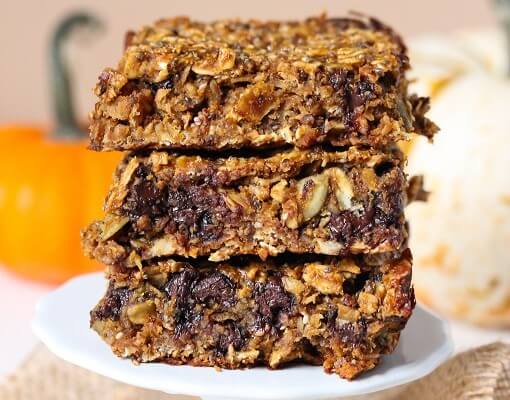
Pumpkin Granola Bars Recipe {gluten-free}
These scrumptious pumpkin granola bars provide a healthy helping of protein and fiber through a chewy treat with a piquant palate. Selecting maple syrup as an alternative to honey can help accommodate vegan bakers as well- so long as you ensure your pumpkin spice is vegan.
Ingredients: Gluten-free rolled oats, pumpkin puree, cashew butter, honey, maple syrup, dark chocolate chips, pumpkin seeds, chia seeds, pumpkin spice.
Total Time: 45 minutes
| Yield: 8 bars

Blueberry Muffins Recipe
{gluten-free}
These delectably blueberry muffins are a sweet treat you can eat for breakfast or add to lunch for a quick means of adding some fiber and protein to your diet while enjoying a decadent confection.
Ingredients: Coconut flour, brown rice flour, gluten-free rolled oats, egg, olive oil, vanilla extract, almond milk, coconut chips, dried blueberries, unrefined sugar, baking powder, baking soda.
Total Time: 45 minutes
| Yield: 10 muffins
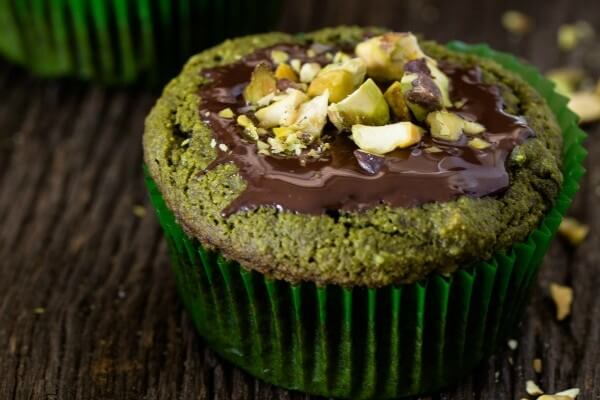
Matcha Green Tea Muffins Recipe {gluten-free}
For those seeking to satisfy their sweet tooth with a more unique palate, these muffins utilize matcha green tea to offer a full flavor with each delectable bite. Though neither muffin is vegan, be sure to check out vegan snacks page for plenty of vegan sweets!
Ingredients: Almond flour, coconut flour, gluten-free rolled oats, egg, olive oil, vanilla extract, almond milk, unrefined sugar, matcha green tea powder, baking powder, baking soda, dark chocolate chips, coconut oil, pistachios.
Total Time: 1 hour
| Yield: 10 muffins
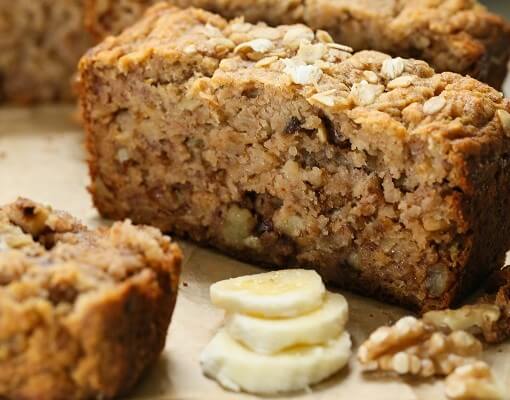
Banana Bread Recipe {gluten-free}
Another fluffy food with a sweet savor to complement its soft texture, this loaf of banana bread makes use of eggs and nuts to supply more than 4 grams of protein per serving. Pair a piece with a glass of your favorite milk for a supremely satisfying snack.
Ingredients: Overripe bananas, eggs, coconut oil, applesauce, almond milk, honey, vanilla extract, brown rice flour, coconut flour, walnuts, gluten-free rolled oats, baking soda, baking powder.
Total Time: 1 hour
| Yield: 12 servings
Vegetarian Snacks
These delectable snacks accommodate most vegetarian diets, but for a list that is specifically for vegans, or for even more snacks suitable for vegetarians, check out our vegan snacks page!
Healthy Eating
- Healthy Highlights
- 5 Uses for Cacao Powder
- 5 Ways to Eat Farro
- 6 Best Gluten-Free Foods
- Alcohol and the Body
- Almond Flour Recipes
- Anti-Aging Superfoods
- Beat the Afternoon Slump
- Benefits of a Plant-Based Diet
- Benefits of Baobab
- Benefits of Cashews
- Benefits of Coconut Oil for Hair
- Benefits of Coconuts
- Benefits of Dates
- Benefits of Fenugreek
- Benefits of Garcinia Cambogia
- Benefits of Goji Berries
- Benefits of Kale Chips
- Benefits of Monk Fruit Sweetener
- Benefits of Peanuts
- Benefits of Pecans
- Benefits of Pistachios
- Benefits of Pumpkin Seeds
- Benefits of Spelt Flour
- Benefits of Steel Cut Oats
- Benefits of Sunflower Seeds
- Benefits of Tiger Nuts
- Benefits of Turmeric
- Benefits of Walnuts
- Benefits of Wheatgrass
- Best Food Fads
- Cacao vs Cocoa
- Caffeine-Free Energy Foods
- Chocolate That's Good for You
- Diet vs. Exercise
- Fat Burning Foods
- Food Myths Debunked
- Foods for Bone Density
- Foods for Colon Health
- Foods for Healthy Hair
- Foods for Healthy Skin
- Foods to Help Sleep
- Foods to Reduce Stress
- Green Tea Benefits
- Healthy Baking Flours
- Heart Healthy Habits
- High Protein Health Risks
- How to Boost Your Metabolism
- How to Lose Weight While Aging
- How to Throw a Vegan BBQ
- Kaniwa vs Quinoa
- Little Health Foods
- Low-Carb: Fad or Friend?
- Making Healthier Desserts
- Mediterranean Diet Meal Plan
- Natural Beauty Products
- Nuts for Weight Loss
- Preparing Vegan Meals
- Preventing Muscle Degeneration
- Rare Superfoods
- Reduce Sugar Intake
- Save Time By Going Vegan
- Smarter Snack Swaps
- Smoothie Ingredients
- Soy Protein vs Whey Protein
- Starting a Plant-Based Diet
- Steel Cut vs Rolled Oats
- Sugar Substitutes
- Vegan Proteins
- Vegan Substitutions for Fall Recipes
- Why Go Vegan
- Healthy Meals
- Healthy Recipes
- Sports Nutrition
- Nutrition and Special Diets
- 21 Day Fix
- 5 Popular Diet Similarities
- Alkaline Diet
- Anti-Inflammatory Diet
- Calorie Counting
- Carb Cycling Diet
- Celiac Disease
- Cholesterol
- Clean Eating
- Crohn's Disease
- DASH Diet
- Detox Diet
- Diabetes
- Diabetes Diet
- Diet Pill Dangers
- Fat Burning Foods
- Gluten-free Diet
- Glycemic Index
- Heart Health
- High Blood Pressure Diet
- High Fiber Foods
- How to Eat Healthy
- How to Lower Blood Pressure
- Hypertension
- IBS Diet
- Ketogenic Diet
- Liquid Diet
- Low GI Foods
- Low-Carb Diet and Foods
- Low-Fat High-Carb Diet
- Mediterranean Diet
- Mediterranean Diet Foods
- Military Diet
- Nutrition Labels Explained
- Paleo Diet
- Raw Food Diet
- Superfoods
- Sustainable Weight Loss
- Thrive Diet
- Vegan Diet
- Vegetarian Diet
- Weight Loss Shakes
- Whole30
- Vitamins, Minerals & Nutrients

